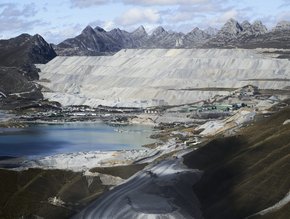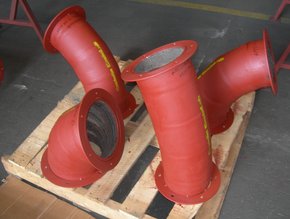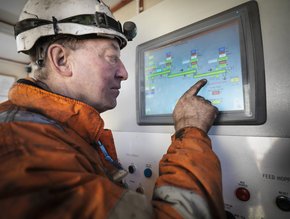Investors snub BHP’s climate plan as it tackles emissions

Lately, you can’t mention BHP without referencing its sustainability goals. The mining giant’s efforts to tackle its emissions have been at the forefront of its agenda for some time, and with the sector’s eyes glued firmly on the mining company’s every environmental move, the pressure is on to deliver its sustainable goals.
But despite the company’s attempts to move in the right decarbonisation direction, some of BHP’s most influential investors disagree with the miner’s methods, citing “room for improvement” and a need for a more progressive strategy.
One of these investors, CGI Glass Lewis, calls into question the science behind BHP’s sustainability plans.
“While the company has the laudable goal of pursuing a long-term goal of net-zero Scope 3 emissions, it appears to have somewhat limited targets,” notes the firm. “It is unclear whether the company’s current targets are science-based.”
BHP’s environmental strategy thrown into question by investors
Of course, BHP isn’t stingy in its environmental ambitions. As the world’s biggest mining company, pressure is placed on BHP’s shoulders to lead by example, resulting in the miner announcing some of the biggest sustainability goals in the industry. Cutting operational emissions by 30% before 2030, net-zero emissions by 2050, decarbonising its Scope 3 footprint and introducing supplier sustainability requirements, BHP is seemingly heading the environmental charge.
But its commitments, in particular its pledge to decarbonise its Scope 3 emissions, has roused unrest among its investors. Due to the requirements not being placed on the Asian steel mills burning vast amounts of BHP’s coal and iron ore, its commitment seems a little contradictory.
Large amounts of the company’s Scope 3 CO2 emissions are a direct result of burning its iron and metallurgical coal and selling to steel mills - contributing straight into the steel industry’s dominance which accounts for approximately 8% of global emissions.
Australia’s biggest companies backed into a corner to align with climate accords
But BHP’s emission ambitions of merely lowering the intensity in comparison to setting exact emissions targets and pursuing unspecified Chinese steel mill collaborations to introduce new decarbonisation technology is leaving investors unimpressed about being kept in the dark with a lack of transparency.
“We understand the significant uncertainty in even just calculating Scope 3 emissions and, by extension, setting precise targets with regard to these emissions,” CGI continue. “However, we believe that more specificity - particularly with regard to its goal regarding steel-making [which comprises approximately three-fourths of its Scope 3 emissions] could allow shareholders a better understanding of how the company intends to address this issue.”
This isn’t the first occurrence of investors attempting to steer companies into a more sustainable direction. Some of Australia’s biggest businesses responsible for pumping out pollution are slowly getting backed into a corner by investors until they align their practices to suit more environmentally friendly alternatives.
“BHP’s climate transition action plan details our goals, targets, and actions to contribute towards global net-zero and provides clarity as to where we are able to make the greatest difference in our value chain in supporting the world’s ambitions,” retaliates BHP, insisting it is succeeding in its sustainability strategy. “We believe that shareholders and other stakeholders benefit from greater disclosure and ambition, which the [plan] delivers.”
Source: SMH
- China Copper, Daye Nonferrous and BHP sign copper dealSupply Chain & Operations
- Glencore and BHP lead positive outlook of mining industryTechnology
- McKinsey: Design is the answer to supply chain disruptionSupply Chain & Operations
- Caterpillar uses EV technology to decarbonise miningSustainability






